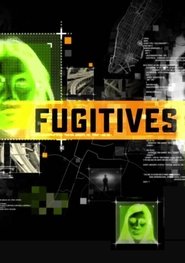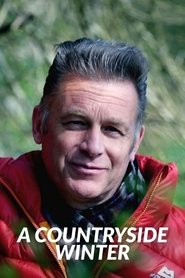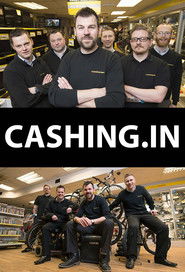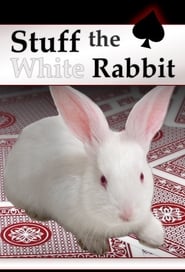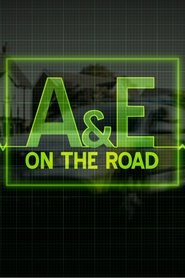Bbc One TV Series - Page 113
-
Children's Hospital
0000
Children's Hospital
0000
Children's Hospital is a British television fly-on-the-wall documentary series based at the Sheffield Children's Hospital, Birmingham Children's Hospital, and Alder Hey Children's Hospital in Liverpool. It was broadcast on BBC One between 1993 and the early-2000s. According to scholar Annette Hill, the series had "all the hallmarks of a docu-soap", saying its "personal, melodramatic stories appeal to viewers, with more that 8 million tuning into the first series, despite widespread criticism from the press." Peter Lee-Wright observes that the series marked a transition in fly-on-the-wall documentaries by shifting the emphasis from the practical considerations onto the "human dramas being played out ... [capturing] the pain of the children ... and their parents' rollercoaster rides." The theme music was composed by Debbie Wiseman. The music was released as a CD single in 1997, containing full orchestral and piano versions of the theme, alongside the shorter versions used for the opening and closing sequences. The -
Rough Justice
0000
Rough Justice
0000
Rough Justice was a BBC television series which investigated alleged miscarriages of justice. It was broadcast between 1982 and 2007, and played a role in securing the release of 18 people involved in 13 cases involving miscarriages of justice. The programme was similar in aim and approach to The Court of Last Resort, the NBC TV series that aired in the US between 1957 and 1958. It is credited with contributing to the establishment of the Criminal Cases Review Commission in 1997. Rough Justice was cancelled in 2007 due to budget restraints, leading to criticism from the media as the announcement came just as the BBC launched an £18 million Gaelic-language channel which would serve only 86,000 viewers. -
Runaway
0000
Runaway
0000
Runaway is the story of a young boy who takes to the streets to get away from the torment he suffers at school and daily problems at home. Life at home is rife with daily doses of scoldings from his half-drunk mother, and his two younger brothers Dean and Jack pay him scant attention until noticing he is missing. On his journey, Sean meets a girl named Molly who takes him to a crumbling mill where her family lives. The series follows the police search for Sean, and how his disappearance affects his family. Runaways was part of a short season on CBBC about children and homelessness, along with a 5-part documentary "Sofa Surfers". The program was first shown as three separated half-hour episodes in March 2009, and later as an 82-minute film. -
Newsroom South East
0000
Newsroom South East
0000
Newsroom South East was the name of the BBC's regional news programme for southeastern England. It was launched in March 1989 as the successor to London Plus, the South East's previous news programme. The programme was in turn replaced by South Today in the Oxford coverage area from October 2000, South East Today in the Bluebell Hill and Dover coverage areas from September 2001 and BBC London News in the Crystal Palace coverage area from October 2001. For all but the last two months, the programme was broadcast from the BBC's Elstree Studios, near Borehamwood in Hertfordshire. In August 2001 the future home of the successor BBC London News programme - a new and purpose built broadcast centre on the Marylebone High Street - was used alongside radio station BBC London Live. To provide continuity to staff prior to the launch of BBC London News, the Elstree set was temporarily placed in the Marleybone Road studios for these few weeks, although the smaller space meant that there was only space for one presenter. Follo -
Fugitives
2017
Fugitives
2017
Fugitives is a BBC series that follows the work of the Metropolitan Police's Extradition Unit, who have national responsibility for locating and arresting fugitives wanted worldwide, and gains exclusive access to the work of the International Crime Bureau at the National Crime Agency, who co-ordinate the search for British men and women on the run abroad and European offenders hiding out in the UK. The series also follows officers in West Yorkshire and central England, who track and arrest wanted foreign nationals from day to day. Filming with officers from the Spanish National Police's Fugitives Unit and Amsterdam's Serious and Organised Crime teams, the programme also tells the stories of how notorious British criminals were arrested abroad. Criminals like drug trafficker Mark Lilley, who was arrested in a safe room in a Spanish villa; armed robber Andrew Moran, who was caught as he relaxed by a pool in his luxury villa, and Sean Devalda who tried to hijack a cash delivery van. He was tracked down to a remote hi -
Monitor
0000
star 6Monitor was a BBC arts programme that was launched on 2 February 1958 and ran until 1965. Huw Wheldon was the first editor from 1958 to 1965. He was also the principal interviewer and anchor. Wheldon set about moulding a team of talents, including John Schlesinger, Ken Russell, Patrick Garland, David Jones, Humphrey Burton, John Berger, Peter Newington, Melvyn Bragg, Nancy Thomas and Alan Tyrer. Monitor ranged in subject over all the arts. The hundredth programme was a film directed by Ken Russell and written by Wheldon, the celebrated Elgar. The Elgar film was innovative because it was the first time that an arts programme showed one long film about an artistic figure instead of short items, and also it was the first time that re-enactments were used. Prior to this, only photos or location shots had been used in programmes. Russell however still met resistance from Wheldon in allowing actors to play the subjects of his films. The Elgar film includes sequences of the young composer riding his bicycle on the Malve -
Should I Worry About...?
0000
Should I Worry About...? was a British documentary series that aired on BBC One from 9 September 2004 to 18 August 2005. It was presented by Richard Hammond, where he looked at the science behind headline health scares. The series has been repeated on Dave. -
Nazis, U-boats and the Battle for the Atlantic
2025
Dive into history. Family memories reveal Northern Ireland's crucial role in WWII's epic sea battle, as divers explore the lost wrecks that reveal the human cost of the conflict. -
Kick Start
0000
star 10Kick Start was a popular series on BBC television inspired by motorcycle trials riding, a sport akin to horse show jumping, but on motorbikes. The programme was first aired in August 1979 and ran until 1988. The programme was devised by Nick Brittan and produced by BBC Pebble Mill producer Derek Smith, who also created Top Gear. The idea for Kick Start originated when the 1978 Lombard RAC Rally organiser, Nick Brittan, realised that top trials motorcyclists, competing over a hazardous track and obstacles, might make exciting television Run against the clock, the show illustrated some of the skills needed in normal trials riding. In the Kick Start format, the riders went over awesome obstacles such as piles of logs, oil drums, rockeries, water troughs, up a wall, up steep banking or a cliff-face and over a car. Penalties, in the form of time added to their round time, would be given for putting a foot on the ground while tackling an obstacle or touching or knocking over specified parts of an obstacle. The show a -
Crush
0000
Crush
0000
-
Beat the Boss
2006
Beat the Boss
2006
Beat the Boss is a BBC TV programme in the UK, presented by Cameron Johnson and previously Saira Khan. Two teams, one kids team named "The Bright Sparks", and one adult team named "The Big Shots", have to create a product that will appeal to the kid's market. At the end of each episode, a panel of kids vote for their favourite product and the team with the most votes wins a limousine ride home while the losers take the bus. The show has been commissioned for a fifth series to be made in Manchester. -
A Countryside Winter
2022
A Countryside Winter
2022
The ultimate guide to a countryside winter featuring wildlife, food, gardening and outdoor adventure. -
Cashing In
2015
Cashing In
2015
Cashing In follows a year in the lives of the staff and customers of Cash Converters, the biggest second-hand retailer and pawnbroker in the world. The most extreme retailers on the high street need to turn a profit which means selling everything from TVs and expensive guitars to mobility scooters and hoovers as well as dealing with fraudsters, shoplifters and customers desperate to raise every penny they can. -
The Kids Are All Right
2008
The Kids Are All Right was a British game show produced by BBC Scotland in association with Initial for BBC One that aired from 12 April 2008 to 14 June 2008. It was hosted by John Barrowman and was recorded at BBC Pacific Quay, Glasgow. It shares some similarities with Are You Smarter than a 10 Year Old?, which airs on Sky1. It also shares similarities with Eggheads, in that it centres around ordinary people trying to beat a team of super-intelligent ones. The auditions were held in 2007 with the children asked to come to a studio with their parents; they were asked to answer questions about themselves, and had to answer a questionnaire. -
Just William
0000
star 6Just William was a BBC television series based on the Just William series of books written by Richmal Crompton. It ran for two series from 1994 to 1995. -
24 Hours
0000
24 Hours
0000
Twenty-Four Hours is a long-running, late evening, daily news magazine programme that aired on BBC1. It focused on analysis and criticism of current affairs and featured in-depth short documentary films that set the style for current affairs magazine programmes. Twenty-Four Hours launched in 1965 and focused on investigative journalism. The programmes main presenter was Cliff Michelmore. -
Amanda and Alan's Italian Job
2023
Amanda and Alan take on their first major renovation project, designing a traditional Sicilian walled kitchen. Kicking off the demolition in 36-degree heat proves to be a trial for Alan, and he soon realises that taking on a build in a medieval hilltop town comes with its own unique challenges. With the help of project manager Scott, Amanda barters with the locals at a nearby marble factory as she bags a bargain for their feature island, and she brushes up on her culinary skills in Marsala, learning how to cook Sicily’s signature dish. -
Night Force
2020
-
Stuff The White Rabbit
1997
A Comedy-Magic show introduced by John Lenahan and featuring a variety of magicians from around the world. Jerry Sadowitz is a regular and David Williamson appears in several episodes. Most of the magic is fast and modern with the emphasis on humour. When it originally aired it achieved record ratings for it's time slot. -
A&E on the Road
2017
star 3.9Fly-on-the-wall documentary following the mobile medical teams of the West Midlands Ambulance Service as they deal with the demands of life on the NHS front line.

